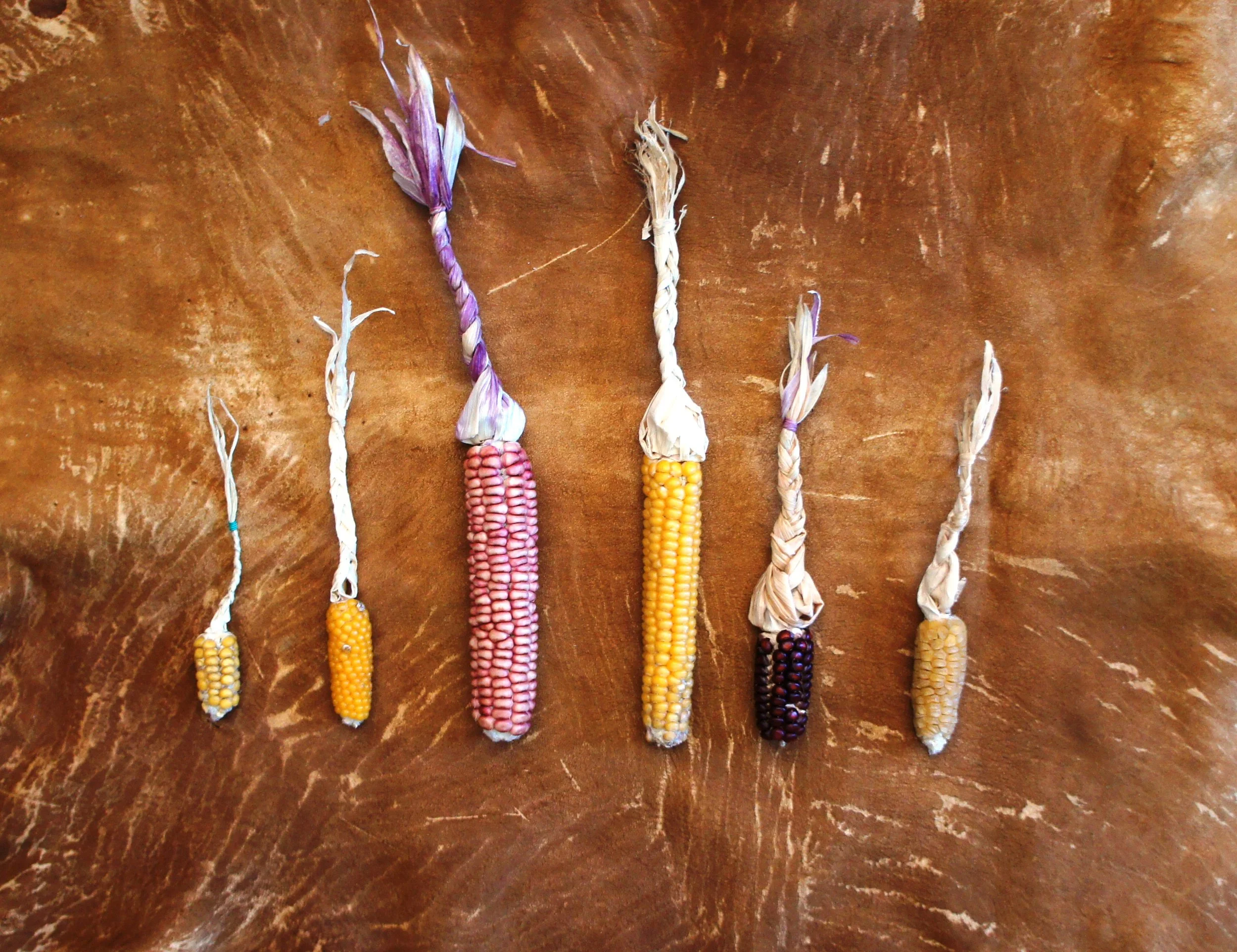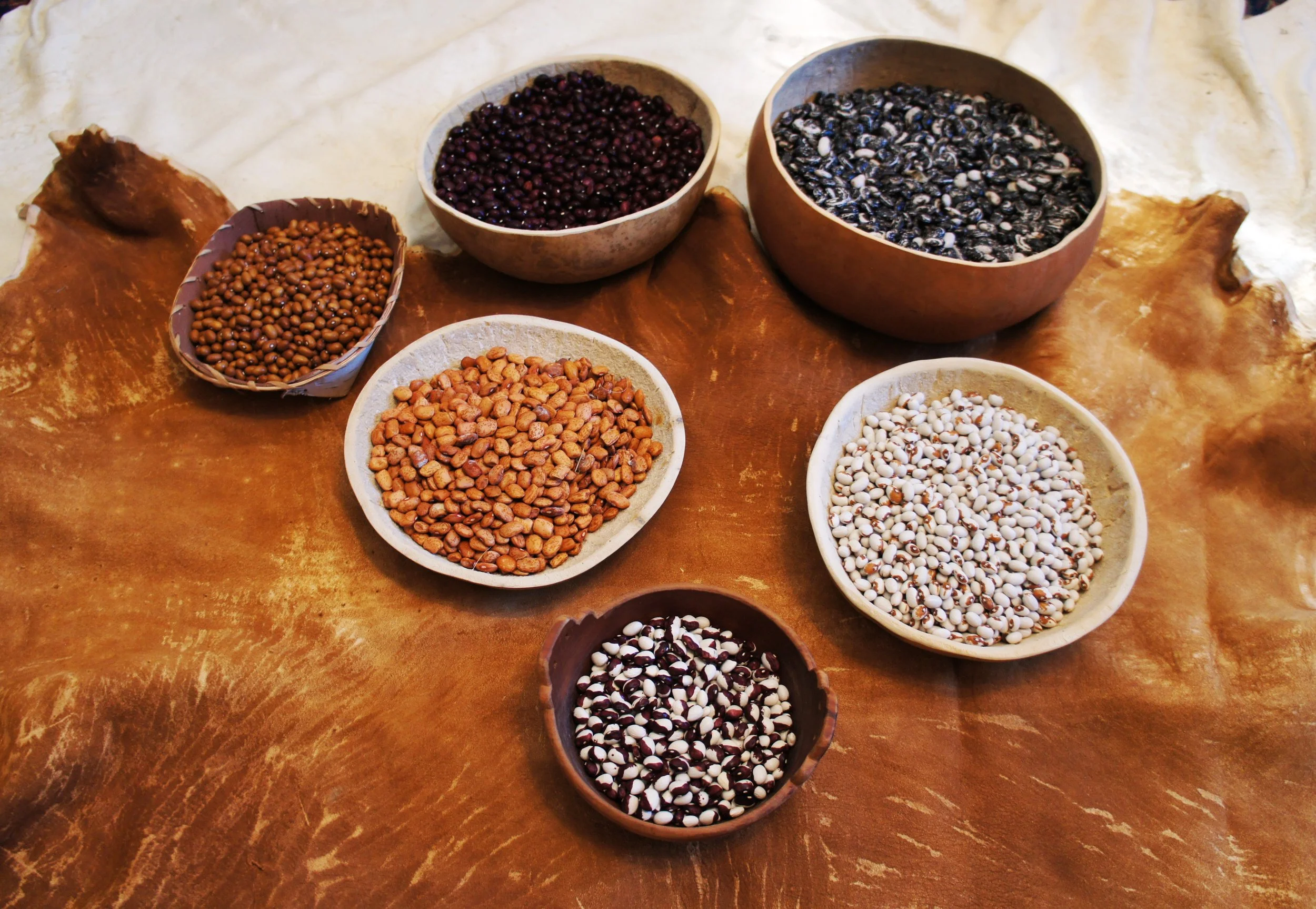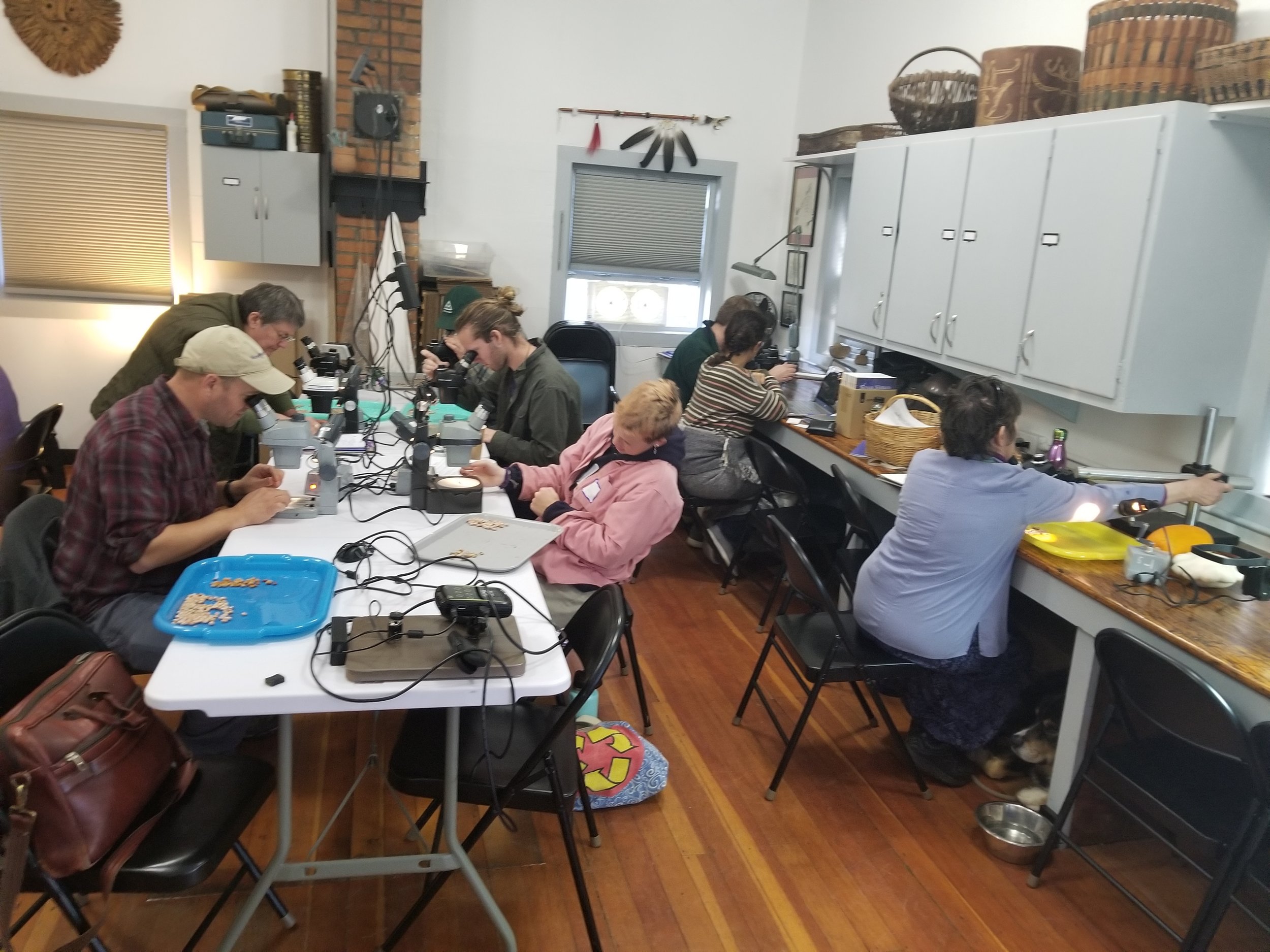Bioculture is a part of our community. Our seeds are our ancestors.
Seeds of Renewal
The Abenaki People are the Indigenous inhabitants of most of Vermont, except a small portion in the southwestern part of the state. They have lived in their land for over 12,000 years. When we think of the Ancient Vermonters, we think of them as hunters and perhaps fisher folk, but we now know that for well over 1,000 years, the Abenaki communities in the Champlain and Connecticut River Valleys as well as the state's other river valleys such as the Winooski and Lamoille, were farmers and gardeners, using sophisticated agricultural techniques and a number of distinctive crops. This rich culture of the Seeded Earth had not been studied to any great extent by archaeologists and cultural historians.
This belief changed in 2006-2010, when cultural and historical research on the four Vermont tribes that were petitioning for Vermont State recognition by the Wôbanakik Heritage Center in Swanton, VT revealed a rich legacy of agricultural earth-working, fertilizing, multi cropping, and even bits of evidence for agricultural ceremonies. In 2012, Steve McComber, a Mohawk ethnobotanist and traditions-keeper told Prof. Fred Wiseman about several crops that he knew were not Mohawk and were almost certainly grown by the Abenakis and their neighbors to the east. A quick search of the internet revealed that McComber's suggestions had a measure of academic support.
History
Armed with this knowledge, the Seeds of Renewal Project (SOR) began in 2012 to track down and preserve ancestral crops, agricultural systems, ceremonies, cuisine, and seed saving practices of the Abenaki tribes in Vermont. The project has identified and preserved over fifty cultivars of corn, beans, squash, and other crops, and has also documented traditional horticultural practices such as mound gardening and fish fertilizing. In addition, SOR has revived traditional Abenaki dances and ceremonies related to agriculture and has collaborated with other Indigenous communities in the region to share knowledge and resources. The project's work has helped to revitalize traditional Abenaki agriculture and has contributed to a better understanding of Indigenous food systems in the Northeast.
2012: project start! By year’s end, 14 Abenaki Crops were identified
2013: start of collating knowledge on Indigenous mound gardening, agricultural terracing, and fish fertilizing from recognition petitions. Intensive research began, involving interviews, crop and soil testing, phenological studies, herbarium sample collecting, and cultivar trading among farmers
2013: started teaching traditional Abenaki agricultural relevant dances, including the Sun, Moon, and Green Corn dances
2014: SOR partners with the Koasek Band to combine known dances, ceremonies (Forgiveness Day, Green Corn and Harvest celebrations), and the horticultural cycle into a yearly biocultural cycle
2015: investigation into regional culinary ethnobotany and cuisine from discussions with tribal elders and study of functional basket relationship to harvest activities
2018: developed an agricultural calendar including Forgiveness Day in winter, Field Blessing in spring, Shooting Fire in summer, Green Corn and Harvest celebrations in Fall
2024: 50+ identified crops of cultivars of corns, beans, squash, sunflowers, ground cherries, sunflowers, sun-chokes, bottle gourds, and tobacco
What are we doing today?
We are growing our traditional crops and creating new, healthy recipes with our crops. Soon we will have our cookbook of traditional and new recipes ready for publishing. It has been an amazing year of cooking and baking.









Partnerships and Education
Seed Saving PartnershipsSterling College: manages the seed saving program to ensure seeds are not lost to extinction or unwanted cross-breeding
Cedarville Band of the Piscataway Indians in Maryland: SOR partnership initiated in 2018 to help reclaim their lapsed crops and agriculture
EducationIndigenous Communities that have been recipients of SOR agricultural renewal educational programming:
Quebec Abenakis, Penosbscots and Passamaquoddies of Maine, and Maliseet and Mi’kmaq of the Canadian Maritimes
Settler (Euro-American) Institutions that have attended SOR seminars and educational programming:
NOFA (VT, NH, MA)
ACORN Conference in New Brunswick
“Seeds of Renewal” Exhibit displayed in partnership with the Vermont Historical Society, in concert with Vermont Agricultural Literacy Week in 2018
Seven Sisters: Ancient Seeds and Food Systems of the Wabanaki People and the Chesapeake Bay Region, a book published through the Earth Haven Learning Centre in Canada in April 2018 by Dr. Frederick M. Wiseman